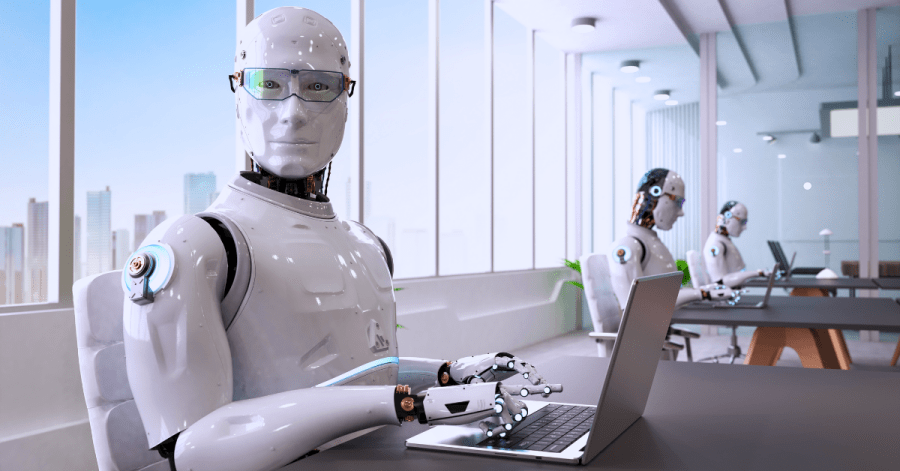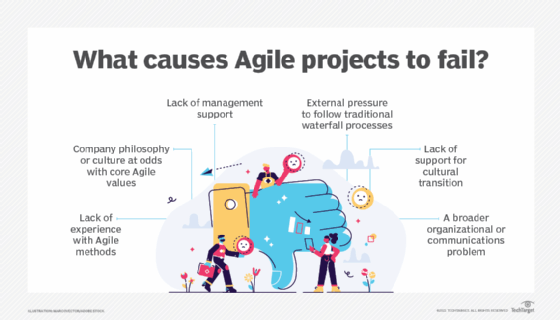Table of Contents
- Automation and job displacement
- Skill shifts and reskilling
- Gig economy and flexible work
- Technological advancements in various industries
- Ethical and social considerations
- Policy and regulatory implications
Artificial intelligence (AI) has been rapidly transforming the way we work and the future of work itself. As AI technologies continue to advance, they are increasingly being integrated into various industries, affecting the nature of jobs and the skills required in the workforce. The impact of AI on the future of work is a topic of great significance, as it raises questions about the potential for automation and job displacement, as well as the potential for new job creation and changes in the way we work. In this article, we will explore the various ways in which AI is influencing the future of work and the implications it has for individuals, businesses, and society as a whole.
Automation and job displacement
Impact on Employment
- The rise of automation and AI technologies has led to concerns about job displacement and unemployment. As tasks that were once performed by humans become automated, the need for human workers in those roles decreases, leading to potential job loss.
Displaced Professions
- Certain professions and industries are particularly at risk of job displacement due to automation, including manufacturing, transportation, customer service, and data entry. As AI technology becomes more advanced, it has the potential to replace humans in a wide range of tasks and roles.
Reskilling and Upskilling
- To mitigate the impact of job displacement, there is a growing emphasis on the need for reskilling and upskilling the workforce. This involves providing training and education in new skills and technologies to prepare workers for the changing job market.
Shift in Job Demands
- While automation may lead to job displacement in certain areas, it also creates new opportunities and demands for skills in other areas. As AI and automation technology continue to evolve, there will be a growing need for workers with expertise in fields such as data science, machine learning, and AI development.
Social and Economic Implications
- The displacement of jobs due to automation has wide-reaching social and economic implications. It can lead to income inequality, as certain individuals may struggle to find new employment opportunities. Additionally, it can impact entire communities and industries, leading to shifts in the overall economic landscape.
Policy and Regulation
-
The potential impact of job displacement due to automation has sparked discussions about the need for policies and regulations to address these concerns. This includes exploring options such as universal basic income, workplace retraining programs, and labor market interventions. It also involves considering the ethical and societal implications of widespread job displacement and the role of the government in addressing these issues.
Skill shifts and reskilling
As artificial intelligence continues to transform the workplace, there is an increasing demand for new skills and a shift in the requirements of existing ones. This phenomenon has led to a growing need for reskilling and upskilling workers to meet the changing demands of the job market.
Skill shifts
With the implementation of AI technologies, certain skills are becoming more crucial in the workforce, while others are becoming less relevant. Some of the key skill shifts that are taking place include:
- Technical skills: There is a rising demand for technical skills such as data analysis, programming, and machine learning as AI becomes more integrated into various industries.
- Soft skills: Soft skills like creativity, critical thinking, and emotional intelligence are becoming increasingly important as they are less likely to be automated.
- Adaptability: The ability to quickly adapt to new technologies and tools is becoming essential as the workplace continues to evolve with AI.
Reskilling and upskilling
In response to these skill shifts, many organizations are recognizing the need to invest in reskilling and upskilling their workforce. This involves providing training and educational resources to help employees acquire the necessary skills to remain competitive in the changing job market.
- Internal training programs: Companies are implementing internal training programs to teach employees new technical skills or enhance their existing ones.
- Partnerships with educational institutions: Some organizations are forming partnerships with educational institutions to provide their employees with access to specialized courses and certifications.
- Skill assessments and development plans: Employers are conducting skill assessments to identify gaps in existing skillsets and creating personalized development plans for employees to bridge those gaps.
Ultimately, the shift in required skills due to AI’s impact on the future of work has highlighted the need for continuous reskilling and upskilling to ensure a workforce that remains adaptable and competitive.
Gig economy and flexible work
The gig economy and flexible work have flourished in recent years, largely due to advances in technology and the rise of artificial intelligence. Below are some key points regarding this phenomenon:
-
Flexibility: Gig economy and flexible work arrangements allow individuals to work when and where they want, providing a level of autonomy and independence that traditional employment may not offer. This flexibility can be particularly appealing to those seeking to balance work and personal life, or those looking to supplement their income.
-
Variety of opportunities: The gig economy encompasses a wide range of industries and job types, from driving for rideshare companies to freelance writing, graphic design, and virtual assistance. Advances in AI have facilitated the matching of workers with tasks, making it easier for individuals to find work that suits their skills and schedule.
-
Challenges: While the gig economy has brought about numerous opportunities for flexible work, it also presents challenges. Gig workers often lack the job security and benefits that come with traditional employment, such as health insurance and retirement plans. Additionally, the erratic nature of gig work can lead to income instability.
-
Impact of AI: Artificial intelligence has played a pivotal role in the growth of the gig economy by enabling platforms to efficiently match workers with tasks and providing tools for remote collaboration. As AI continues to evolve, it is likely to create more opportunities for specialized and on-demand work that cater to the skills of individual workers.
-
Regulatory considerations: The rise of gig work has prompted discussions about labor laws and regulations to ensure that gig workers are protected and treated fairly. As AI continues to shape the landscape of work, it will be important to consider how regulations can adapt to accommodate the gig economy while safeguarding workers’ rights.
Technological advancements in various industries
Healthcare
- The healthcare industry has been revolutionized by technological advancements, especially in the field of medical imaging. AI-powered tools now assist doctors in diagnosing diseases through the analysis of medical images such as X-rays, MRIs, and CT scans, leading to more accurate and timely diagnoses. Additionally, wearable devices and mobile apps have made it easier for patients to monitor their health and for healthcare providers to track patient data, leading to improved patient outcomes.
Manufacturing
- AI has transformed the manufacturing industry through the implementation of smart factories and automation. Robots equipped with AI have increased efficiency and precision in assembly lines, leading to higher productivity and reduced errors. Moreover, predictive maintenance using AI algorithms has helped organizations minimize downtime and prolong the lifespan of equipment, ultimately resulting in cost savings.
Financial Services
- In the financial services sector, AI has enabled the development of robo-advisors that provide automated, personalized investment advice to individuals based on their financial goals and risk tolerance. Furthermore, AI and machine learning algorithms are used to detect fraudulent activities and patterns, enhancing security measures and preventing financial fraud.
Transportation
- The transportation industry has seen significant technological advancements with the integration of AI. Self-driving vehicles, powered by AI algorithms, have the potential to revolutionize the way people and goods are transported, leading to more efficient and safer transportation systems. Additionally, AI-based route optimization and predictive maintenance solutions have been implemented to streamline logistics operations and reduce costs.
These examples demonstrate the significant impact of technological advancements, particularly AI, across various industries. As AI continues to evolve, it is expected to further revolutionize the future of work by augmenting human capabilities and transforming business processes.
Ethical and social considerations
-
Job displacement: One of the major ethical and social considerations is the potential for widespread job displacement as AI systems become capable of performing tasks currently carried out by humans. This raises questions about the responsibility of businesses and governments to support workers who may lose their jobs due to AI implementation.
-
Bias and discrimination: AI systems are only as unbiased as the data they are trained on, and there have been many instances of AI algorithms reinforcing existing societal biases and discrimination. Ensuring that AI is developed and implemented in a way that does not perpetuate inequality is a crucial ethical consideration.
-
Privacy and surveillance: AI’s ability to collect, analyze, and interpret vast amounts of personal data raises concerns about privacy and surveillance. This requires careful consideration of the rights of individuals and the ethical use of data.
-
Accountability and transparency: When AI makes decisions that impact people’s lives, it is essential that there is transparency in how those decisions are made. Ethical considerations include ensuring accountability for AI systems and making their decision-making processes transparent to avoid harmful and unjust outcomes.
-
Equity and access: Another critical ethical and social consideration is the potential for AI to exacerbate existing disparities in access to resources and opportunity. Addressing access to AI technology and ensuring that its benefits are equitably distributed will be important for minimizing societal inequality.
-
Human-AI collaboration: As AI becomes more integrated into the workforce, ethical considerations also include finding ways to ensure that humans and AI systems can collaborate effectively and ethically, maximizing the strengths of each while minimizing the potential for harm.
-
Moral decision-making: As AI systems are increasingly used to make complex decisions, there is a growing need to address the ethical dimensions of these decisions and ensure that AI reflects human values and moral principles.
Policy and Regulatory Implications
The impact of artificial intelligence (AI) on the future of work has far-reaching implications for policy and regulatory frameworks. As AI continues to disrupt traditional industries and reshape the labor market, policymakers must proactively address the social, economic, and ethical challenges that arise. The following are some key policy and regulatory implications in the context of the impact of AI on the future of work:
-
Labor Market Regulations: Policymakers must consider updating labor laws to accommodate the rise of AI, automation, and gig economy platforms. This includes redefining employment status, establishing guidelines for gig workers, and ensuring fair labor practices in the era of AI-driven automation.
-
Worker Protections: Adequate regulations are needed to protect workers from potential displacement due to AI and automation. This may involve retraining programs, income support, and job transition assistance to mitigate the negative effects of technological disruption on employment.
-
Ethical AI Guidelines: Policymakers should develop ethical guidelines and regulations to ensure that AI technologies are used responsibly and do not perpetuate biases or discrimination. This includes addressing issues related to data privacy, algorithmic transparency, and accountability in automated decision-making processes.
-
Education and Training Initiatives: Policy efforts should focus on enhancing education and training programs to equip the workforce with the skills needed to thrive in an AI-driven economy. This may involve collaborations between government, industry, and educational institutions to promote lifelong learning and upskilling.
-
Economic Policies: Governments need to develop economic policies that foster innovation, entrepreneurship, and the creation of new jobs in AI-related fields. This includes investment in research and development, support for startups, and fostering a conducive environment for AI-driven industries.
-
International Collaboration: Given the global nature of AI, policymakers must engage in international collaboration to establish harmonized regulations and standards for AI technologies, ensuring a level playing field and ethical use across borders.
In conclusion, addressing the policy and regulatory implications of AI’s impact on the future of work is crucial for harnessing the benefits of AI while mitigating its potential negative consequences. A proactive and strategic approach to policymaking will be essential in shaping a sustainable and inclusive future of work in the age of AI.

Director @Anyalpha, a Top Software Development Company offering Mobile App Development and Website Development Services to Businesses & Startups.



